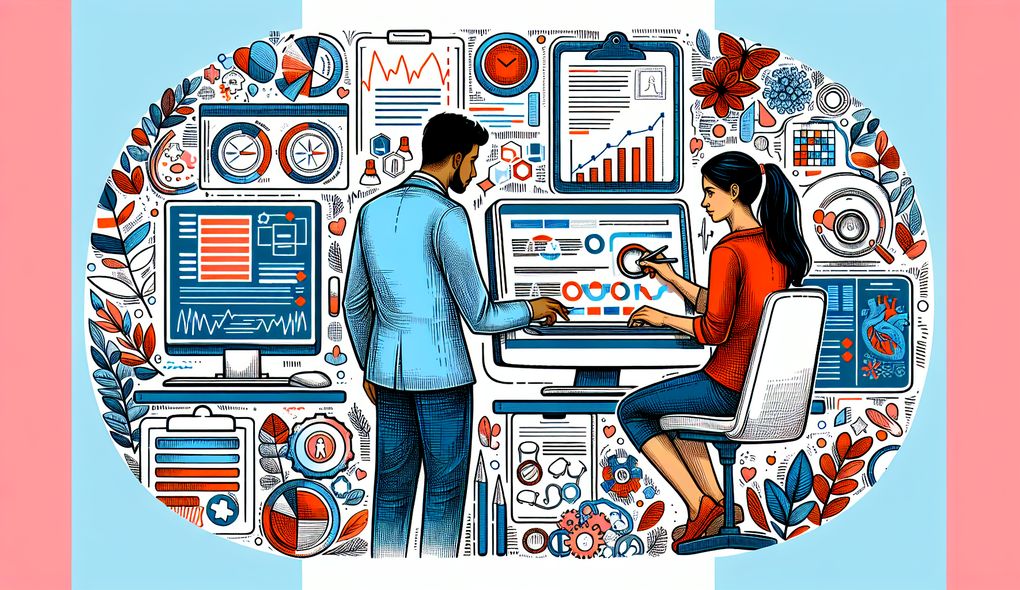How do you handle feedback and criticism?
JUNIOR LEVEL

Sample answer to the question:
I handle feedback and criticism by first taking a moment to process the information. I try to separate my emotions from the feedback and focus on the constructive aspects. Once I have processed the feedback, I take the necessary steps to address it. This may involve making improvements to my work, seeking guidance or advice from others, or taking additional training if needed. I believe that feedback is essential for personal and professional growth, so I always strive to learn from it and make necessary improvements.
Here is a more solid answer:
Handling feedback and criticism is an important part of my professional growth. I approach feedback with an open mind, recognizing that it is an opportunity for improvement. First, I listen carefully to understand the feedback being provided. I ask clarifying questions to ensure I fully grasp the feedback's intent and take notes to remember key points. Next, I take time to reflect on the feedback, evaluating its validity and considering how it aligns with my goals. If the feedback is constructive, I consider it a valuable learning experience and an opportunity to develop new skills. I proactively seek additional resources or training to address any identified areas for improvement. Time management is crucial in this process, as I prioritize incorporating feedback into my workflow. Lastly, I engage in open and honest communication with the person providing feedback, expressing gratitude for their input and sharing any progress or changes resulting from their feedback. This approach allows me to effectively handle feedback and turn it into personal and professional growth.
Why is this a more solid answer?
The solid answer expands on the basic answer by providing specific strategies for handling feedback, such as active listening, reflection, seeking additional resources, and open communication. It demonstrates the candidate's ability to effectively utilize critical thinking, time management, and interpersonal communication skills.
An example of a exceptional answer:
Handling feedback and criticism is a valuable opportunity for growth and development. When receiving feedback, I approach it with a growth mindset, recognizing that it can help me enhance my performance and achieve better results. Firstly, I actively listen and show appreciation for the feedback, ensuring the person feels heard and understood. I use critical thinking to analyze the feedback, assessing its validity and relevance to my role as a Healthcare Quality Assurance Analyst. If the feedback is constructive, I take immediate action by creating an action plan with specific goals and timelines to address the identified areas for improvement. I leverage my time management skills to prioritize these action steps and integrate them into my daily workflow. Additionally, I proactively seek opportunities for self-improvement, such as attending relevant workshops or conferences, participating in webinars, or enrolling in online courses to further develop my skills. Open and transparent communication is essential throughout this process, so I regularly update the person providing feedback on my progress and seek their guidance if needed. Overall, I view feedback as a valuable tool for continuous improvement and strive to handle it professionally and constructively.
Why is this an exceptional answer?
The exceptional answer takes a proactive approach to handling feedback and highlights the candidate's growth mindset. It demonstrates the candidate's strong critical thinking, time management, and interpersonal communication skills, as well as their commitment to continuous self-improvement. The answer provides a comprehensive strategy for handling feedback and presents a clear understanding of the importance of feedback in the context of the Healthcare Quality Assurance Analyst role.
How to prepare for this question:
- Reflect on past experiences where you received feedback or criticism and think about how you handled it. Identify areas where you could have improved your response.
- Research and familiarize yourself with the common techniques for receiving and processing feedback, such as active listening, reflection, and goal setting.
- Consider how feedback can contribute to your personal and professional growth in the specific context of the Healthcare Quality Assurance Analyst role.
- Practice responding to feedback in a constructive and professional manner. Role-play scenarios with a friend or mentor to simulate real-life situations.
- Develop a growth mindset and cultivate a positive attitude towards feedback. Emphasize the value it brings to your development and improvement as a professional.
What are interviewers evaluating with this question?
- Interpersonal communication
- Critical thinking
- Time management

